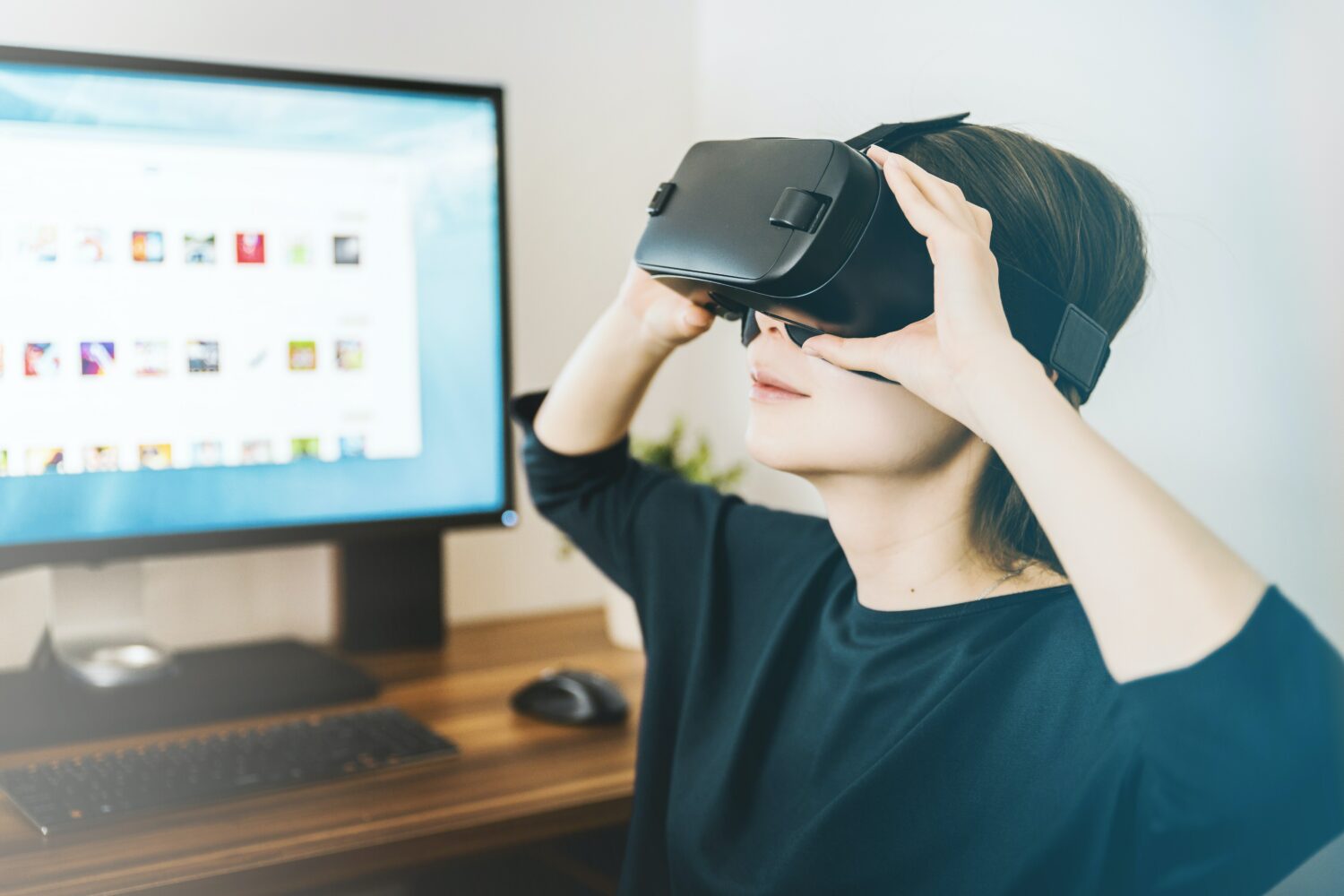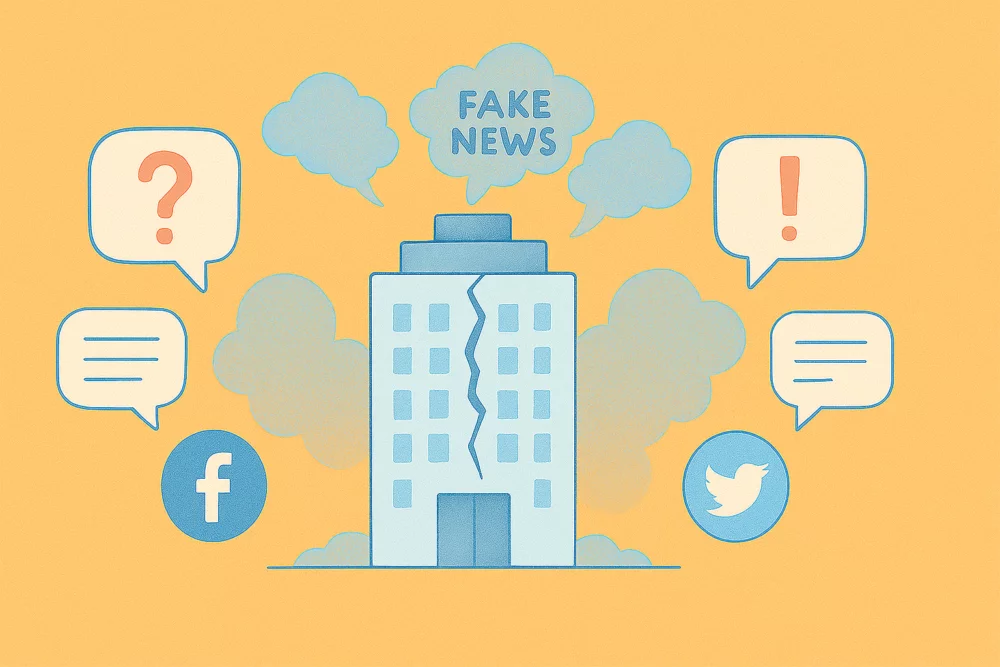It breaks down the boundary between reality and the virtual. The metaverse, still in its infancy, promises total immersion. Internet users will be able to evolve in a parallel world and interact as an avatar. But the experience is not limited to individual use. Immersive universes are new opportunities for companies, many of which are investing in this Web 3.0.
Immersive worlds that reinvent the customer experience
Although it is still in its infancy, the metaverse already appears to be a major technological development for companies. Immersive universes could well transform the customer experience in depth: unlike the Internet, it is no longer a question of clicking, but of attending events, visiting points of sale, trying out products or buying them with cryptocurrencies... in three-dimensional worlds. If the tech giants are the first to have launched themselves into the metaverse race - Meta in the lead -, many companies are getting to grips with the subject: by 2026, 30% of them will have products and services ready for the metaverse, according to the Gartner study cited above.
Virtual worlds are shaking up different sectors. One of them, more than the others, could experience a major revolution through the metaverse: retail. "The metaverse will remove most of the physical barriers that still weigh on businesses," says Vishal Shah, vice-president of the Facebook Reality Labs project at Meta. Luxury brands, pioneers in the field, have anticipated this upheaval by launching themselves very early on the metaverse, like Gucci for example. In May 2021, the Italian brand replicated the Gucci Garden, its museum that brings together all its iconic models, on the Roblox platform. For a fortnight, Internet users discovered this virtual exhibition space and were able to try on the brand's pieces or even buy them with cryptocurrencies. A winning gamble that generated a lot of interest in the community: a virtual bag in NFT - a unique digital title of authenticity stored on the blockchain - was sold for $700, more expensive than its version offered in a traditional shop.
Other more unexpected sectors have also jumped on board. Some French supermarket chains are embracing Web 3.0, such as the Casino Group. In February, it announced the acquisition of a virtual plot of land in the metaverse. On this space, no shop, but a game on the theme of food accessible to members of the Leader Price Club, with the key to purchase vouchers. "Understanding changes in consumption patterns is at the heart of our DNA," explained Nicolas Joly, CEO of Casino Immobilier, in an interview on BFM Business last April. "The metaverse will be part of our customers' journey tomorrow. We are very interested in it in a very concrete way."
The metaverse, a new working environment
The pandemic, by accelerating the adoption of teleworking, had already stimulated the use of technology in the professional context. While video-conferencing tools have definitely become part of the corporate culture, they may soon give way to the metaverse.
In a decentralised business world, virtual workplaces are becoming more and more attractive to companies. Unlike Microsoft Teams or Zoom meetings, virtual offices allow people to meet in a way that is different from a screen and offer an enhanced social experience. Teams can meet, interact, work collaboratively on different tasks and even broadcast their laptop screen... In short, all the possibilities of the real thing, from home.
Will other companies take the plunge into the metaverse tomorrow? This technology could well transform working practices and environments. At least that is what Microsoft founder Bill Gates says: "In the next two or three years, most virtual meetings will move from 2D camera grids to the metaverse, a three-dimensional space with digital avatars," he says in his personal retrospective of the year 2021. "There is still work to be done, but we are approaching a threshold where technology is starting to truly replicate the experience of being together in the office."
In any case, initiatives are already emerging. The American giant Meta, obviously very committed to the subject, took the lead by announcing last August the launch of its Horizon Workrooms application, a virtual meeting space where its teams can chat in the form of a customisable avatar. This is not just a gimmick for the company: "Horizon Workrooms is our flagship collaboration experience that allows people to come together to work in the same virtual room, regardless of physical distance," said Mark Zuckeberg at the press conference dedicated to this new project. Other companies are following suit, such as Microsoft with its new immersive Microsoft Mesh platform.
The metaverse, the future of communication?
The metaverse is also a new universe... of communication. In addition to transforming business strategies and work environments, immersive universes are raising new marketing issues. To present products in a more playful and immersive way, to engage communities more... The possibilities are endless! And for good reason: at the beginning of this new world, everything is still to be built. "Brands can push the limits of creativity in the metaverse and offer experiences that aren't possible in the real world," said Christina Wootton, VP of Partnerships at Roblox, in an episode of The Current podcast last February.
However, parallel worlds should not overshadow reality. If bringing the brand to life in the metaverse is becoming a major challenge for certain companies, it is necessary to succeed in coupling the virtual and real worlds. The interest is to take into account the dual "digital-physical" level to amplify the experience, and not simply duplicate it. To help companies find this balance, several communication agencies are investing in virtual worlds. Starting with Havas Group, the first French communications group to take an interest in metavers with its Metaverse by Havas solution dedicated to helping brands in these new incarnations of the social web.
Press relations also have their cards to play. Virtual worlds are an opportunity for companies to strengthen their digital PR by offering immersive events to journalists. A bet taken by Orange last April. For the launch of its latest Livebox, the French telecommunications brand invited journalists to discover its new product in the metaverse.
"Some forty journalists from the national and regional press met in Paris, Bordeaux, Rennes, Nancy and Marseille for 45 minutes of product discovery, connected in the virtual world," explains the virtual reality and metaverse agency VR Academie, Orange's partner in this operation. "The personalisation of the environment in the Orange colours and the creation of the new Livebox as a 3D object enabled the journalists present to interact with the product in the virtual as well as the physical world. This experience was extended outside the metaverse with 15 minutes of Q&A." Will press conferences in immersive worlds become a standard in the years to come?
Emma Alcaraz








